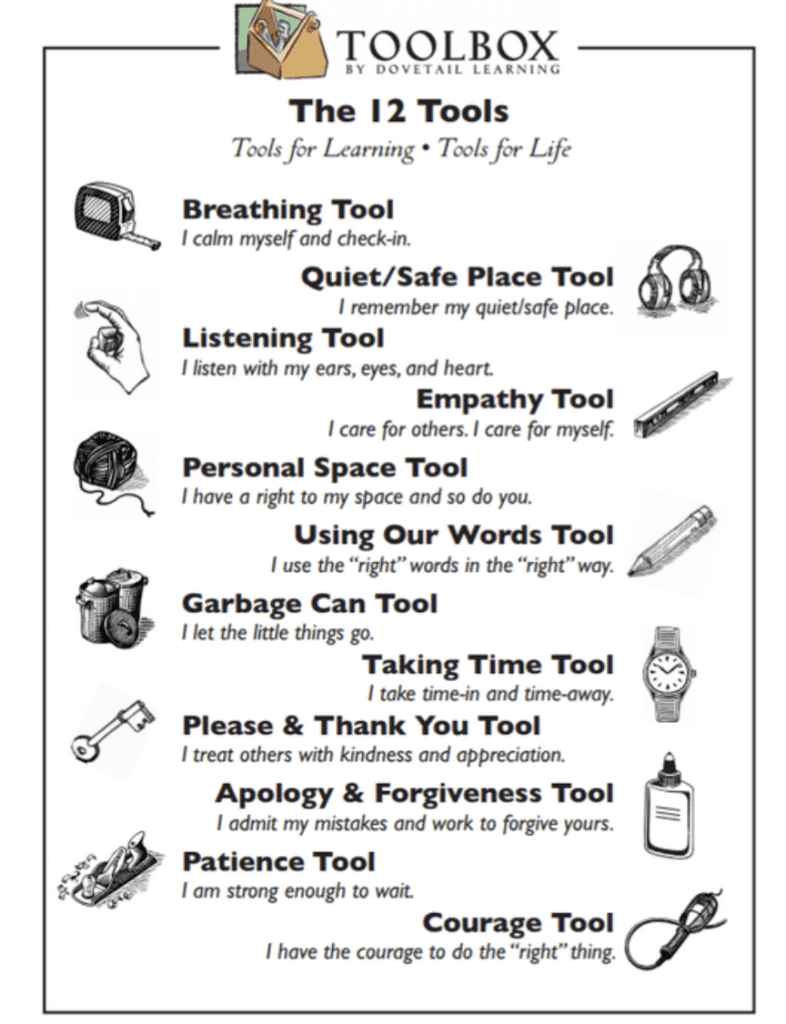
March 13, 2023 By Glenn Mangurian
Last month, my essay “Everyone Deserves a Buddy” was about the Buddy Bench at the Hingham South Elementary School playground. Children who need a friend to play with (for whatever reason) can sit on the bench during recess and other students are encouraged to invite those they see sitting on the bench to play with them. While visiting the school, I became aware of the TOOLBOX for Learning about which all Hingham elementary students are taught. I had heard my grandchildren who attend the South School mention the Toolbox but didn’t know what they were referencing. As I read about the Toolbox, I came to realize the Tools were not just for children but also Tools for all ages – Tools for life.
TOOLBOX PROJECT™ curriculum was developed over eight years by Mark Collin, a counselor in a rural school district in Northern California. In his words, “the children were struggling with many personal and family challenges, in addition to the usual struggles of growing up. They had no Tools to recognize and name their feelings and deal with them constructively.” Mark used the metaphor of a personal Toolbox to convey that the Tools can be used on demand. In talking with my grandchildren I quickly learned that they “get it” and it didn’t take me long to “get it”. Mark said that children trained in primary grades describe ongoing benefits of Tools in their adult lives.
The TOOLBOX helps us build self-mastery and empathy for ourselves and others. TOOLBOX is rooted in resilience, self-knowledge, self-awareness – critical elements of emotional intelligence. Emotional intelligence is defined as the ability to understand and manage our emotions, as well as recognize and influence the emotions of those around us. When we, as parents or in leadership roles, use elements of the TOOLBOX, we model behavior for others on how to work through challenges, be self-aware and act with resilience.
Here are the 12 Tools in the TOOLBOX. Take a look. Think about how you relate to each of them?

Here is what is interesting. The Tools are free. They already reside within us. The Tools are simple but they require a lot of practice. Some will come naturally but others may be challenging to access. Some Tools are simple to use and others may be hard to access even though they are useful. For example, the Apology and Forgiveness Tool, while readily available, takes self-esteem and inner strength to employ. It requires letting go of anger and judgment. This can be challenging for most of us. Similarly, the Patience Tool is often a work in progress. Patience develops our capacity for tolerating situations that are not under our control. The Toolbox is another example what we learn at a young age carry forward into Tools for Life.
Food for Thought
What are your “go to” Tools? When do you use them?
Which Tools are hardest for you to use? Why?
What new Tool can you start practicing today?

